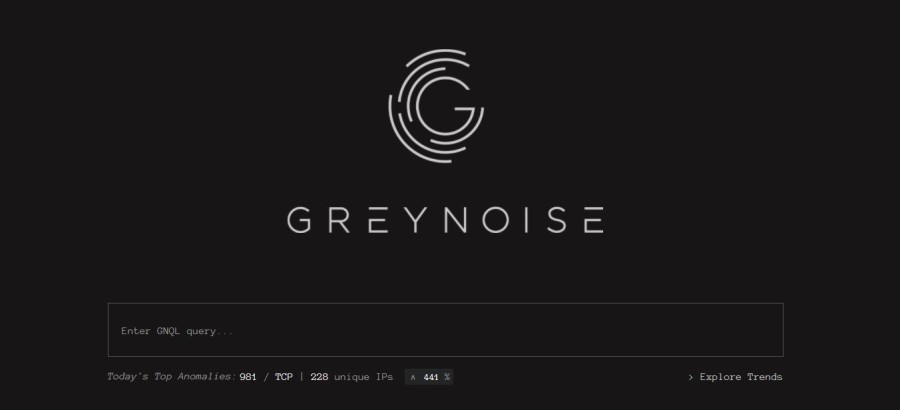Search engines have become essential tools in the 21st century for everyone, including IT security professionals.
We need search engines like Google to check a product review and booking hotels to find the synonym of a word.
Looking at the huge success of Google, now you can find so many search engines these days, including Safari, Bing, Yandex, DuckDuckGo, etc.
But do you think every piece of information is available on these publically available search engines?
The answer is NO.
So, what will you do if you need to find the information essential for your company’s or website security?
What if the data is not available in these search engines?
Don’t frown; the solution exists!
There are specific search engines equipped with tools designed primarily to cater to cybersecurity teams and security researchers’ needs. These search engines help you browse valuable information that you can leverage on your security operations.
You can use them to find exposed internet devices, track threats, analyze vulnerabilities, prepare for phishing simulations, discover network security breaches, and much more.
This article will learn more about these search engines and then check out the best ones you can use for your security research.
But,
What’s the importance of information gathering during security research?
Collecting information for security purposes is the first step that researchers take to defend their data and privacy and analyze threat possibilities.
The process includes two goals:
- Gathering system-related data like OS hostnames and system types, system banners, system groups, enumeration, and more
- Collecting network information like private, public, and associated network hosts, domain names, routing cables, private and public IP blocks, open ports, SSL certificates, UDP and TCP running services, and more.
The benefits of collecting these data are:
- To get an idea about all the devices connected in your network, who the user is, and their location, you can secure them. If you find any discrepancy there, you can block the system or user to protect your network.
- The information collected helps you find vulnerabilities to fix them before they could cause a security issue.
- Understand possible attack patterns and their methods like phishing, malware, bots, etc.
- Use the data to learn how your products are performing, which areas are most profitable, and derive market intelligence to shape your offerings.
Now, let’s look at some of the best internet data search engines great for security professionals.
Shodan
Shodan is a leading search engine to conduct security research for devices connected to the internet. Thousands of security professionals, researchers, CERTs, large enterprises, etc., are using this tool worldwide.
Other than websites, you can use it for webcams, IoT devices, refrigerators, buildings, smart TVs, power plants, and more. Shodan helps you discover your devices connected to the internet, their location, and people using them. It allows you to find your digital footprints and track all the systems within your network that users can access using the internet directly.

Gain a competitive edge by understanding who is utilizing your product and their location by performing empirical business and market intelligence. Shodan’s servers are located across the world and are available 24/7, so you can gain the latest intelligence and analyze data.
It is a useful tool to learn about potential buyers of a specific product, which countries produce it the most, or what firms are the most affected by a security vulnerability or attack. Shodan also offers a public API so that other tools can access Shodan’s data. It supports integration for Nmap, Chrome, Firefox, FOCA, Maltego, Metasploit, and more.
ZoomEye
China’s first cyberspace search engine, ZoomEye, is powered by Knownsec. ZoomEye maps the local or overall cyberspace by scanning and finding many service protocols and ports 24/7 through a huge number of mapping nodes and global surveying based on IPv6, IPv4, and site domain name databases.
The years of technological transformation has made it capable of developing a core cyberspace search engine of its own. In this way, it fosters trend analysis on accumulated data mapped across space and time dynamically.

You can use the component search navigation of ZoomEye to discover target assets accurately and quickly. For this, they have multiple equipment types such as a gateway, CDN, Big Data, voice recorders, CMS, web frameworks, software platforms, and more.
You can also search against special topics and check the vulnerability impact assessment. These topics include databases, industries, Blockchain, firewalls, routers, network storage, cameras, printers, WAFs, network storage, etc., and check the reports to get a detailed idea. ZoomEye offers a free pricing plan for 10,000 results/month. Its paid plans start from $35/month for 30,000 results.
Censys
Censys REST API is another safe and reliable option to perform data searches for security. The same information that you can access via the web interface is accessible with this API programmatically.
You need this tool to perform all the scripted access. Their API endpoints require authentication with HTTP through the API ID. They offer multiple API endpoints that include:
- Search endpoint to perform a search against Alexa Top Million, IPv4, & Certificates indexes. As a result, the endpoint shows the latest data for the selected fields.
- The View endpoint collects structured data regarding a specific website, host, or certificate after getting the website domain, IP address of the host, or SHA-256 fingerprint of a certificate.
- Report endpoint lets you discover the aggregate value breakdown of the fetched results for a specific query.
- Bulk endpoint collects structured data regarding bulk certificates once you have the SHA-256 fingerprints of those certificates.
- Account endpoint fetches your account data in Censys, including the quota usage of your current query.
- Data endpoint displays metadata of the information that you can download out of Censys.
GreyNoise
Get started with your data research using the simple interface of GreyNoise. It curates data on IP addresses, saturating security tools and telling security analysts that there’s nothing to worry about.
GreyNoise’s Rule It Out (RIOT) dataset offers communication contexts between users and business applications (like Slack, Microsoft 365, etc.) or network services (like DNS servers or CDNs). Through this out-of-the-box perspective, analysts can ignore harmless or irrelevant activities confidently and create more time for investigating actual threats.

The data is supplied through their SOAR, SIEM, along with TIP integrations, command-line tools, and API. In addition to this, analysts can also view the activities using the above platforms or GreyNoise’s analysis and visualizer tool. Detecting any of your system scanning the internet alerts you immediately as the device might be compromised.
Your security team can uncover tradecraft across the web by exploring data using the GreyNoise Query language (GNQL). The tool determines behaviors with CVEs and tags and displays threat instances. It also enriches and analyzes data collected from thousands of IP addresses to identify intent and methods.
SecurityTrails
Strengthen your security and make business decisions confidently with accurate and comprehensive data using SecurityTrails. Their API is fast and always available, so you can access historical and current data without wasting time.
You can view DNS record history that is fully-indexed and ready to access all the time. Search from approximately 3 billion current and historical WHOIS data along with WHOIS changes. They update their database daily, and as of now, they have 203M data and growing.
Use this data to search domain names and what technology websites are running. Get access to passive DNS data sets per month from more than 1 billion entries. You can also learn the latest intel on IPs, hostnames, and domains in real-time.

You can even find all the subdomains that are known to this date. SecurityTrails features indexed intel and tagging, which makes it easy and faster to search for data. Find suspicious DNS record changes and see the correlation using the API.
Through reputation scoring systems, you can access data to prevent bad actors and their IPs and domains—Hunt down threats by tracking command & control servers to get malware info.
Carry out online fraud investigation, view acquisitions, and mergers, and find hidden details and online assets without any trouble. Protect your brand by knowing when your brand trademark or other copyright material is used for fraudulent domains.
Spyse
Spyse is a complete online asset registry that every security company and cybersecurity professionals can use. Scan the whole internet to collect publicly available information about websites, owners, servers, and other internet-connected devices.
Analyze these collected data to find security risks and vulnerabilities along with implicit connections between two internet entities. Spyse stores and saves all the data analysis results out of approximately 25 billion records and creates an internet map that is fully up-to-date for you to leverage.
They allow you to access all this available information for real-time data search and analysis as well as third-party integrations. Using its simple interface, you can perform custom search queries and bulk searches as well.
You can try their advanced search tool to conduct finely-tuned search queries through a comprehensive set of interesting filters. It needs no query syntax; just find, download, or share the data you require with simple clicks.
Moreover, use the Bulk Search tool to find multiple targets simultaneously. You can submit a text or upload a document, and let them parse the contents, IPv4 addresses, find the domains, and display each result quickly to save your time.
The Spyse API consists of search operators of large varieties and in-depth documentation over Swagger. Integrate the API with your cybersecurity solution, recon pipeline, or database for data acquisition in real-time.
Conclusion
Cybersecurity issues are increasing, and it’s best to protect your data and privacy by strengthening the vulnerabilities before anyone can exploit them.
Hence, use these internet data search engines and carry out your search to stay one step ahead of attackers and make better business decisions.



